Kraft Prize Symposium
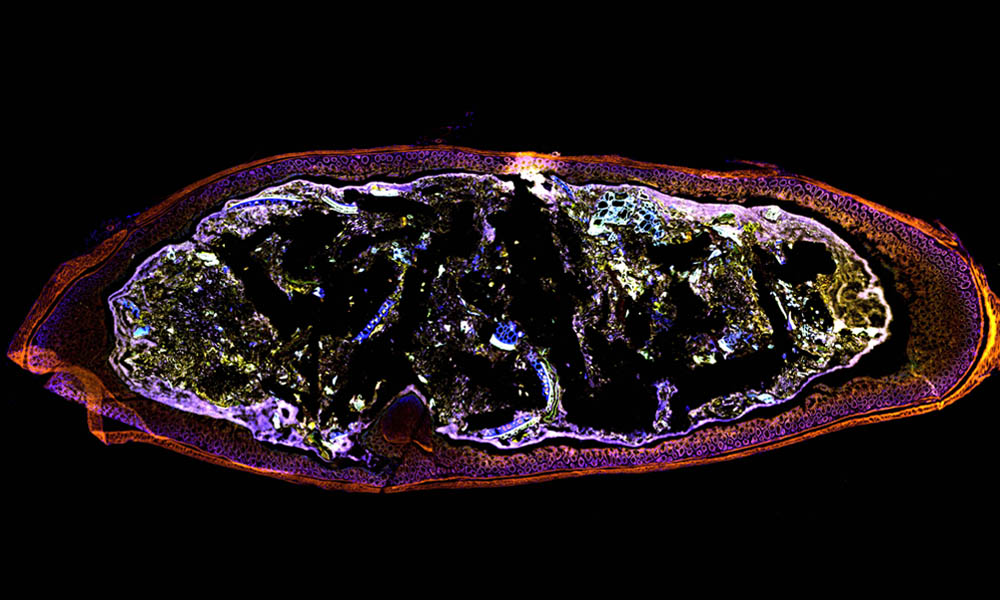
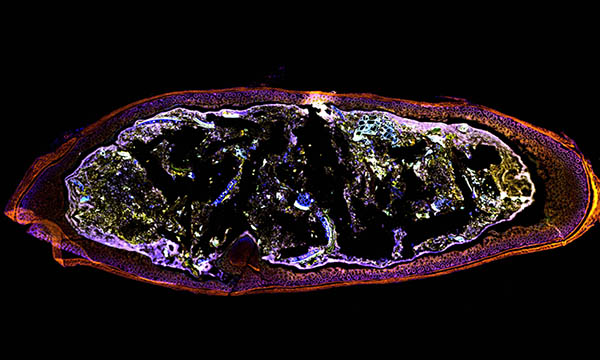
Contact Information
Kraft Prize Symposium
Overview
Since 2006, the Mass General Krantz Family Center for Cancer Research has annually honored a luminary in the field - an extraordinary scientist, who has made major advances in our understanding of cancer and its treatment, and has been recognized as a true mentor by teaching and inspiring the next generation of cancer researchers. This year, the 2025 Kraft Award will be presented to Jennifer A. Wargo, MD, MMSc of the University of Texas MD Anderson Cancer Center for her groundbreaking work in the microbiome and cancer immunology.
2025 Event & Agenda
2025 Jonathan Kraft Prize for Excellence in Cancer Research
Thursday, May 29, 2025 | 1:30pm - 5:30pm
Simches 3110 Auditorium, Simches Building 3rd Floor
185 Cambridge Street, Boston, MA 02114
Download agenda (pdf)
1:30pm - Welcome and Opening Remarks
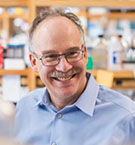 Daniel A. Haber, MD, PhD
Daniel A. Haber, MD, PhD
Director, Krantz Family Center for Cancer Research
Director Emeritus, Mass General Brigham Cancer Institute
Introductions
 Andrea McClatchey, PhD
Andrea McClatchey, PhD
Symposium Chair
Professor of Pathology
Poitras Family Endowed Chair in Oncology
Director for Academic Affairs, Krantz Family Center for Cancer Research
Dr. Andi McClatchey is a Professor of Pathology at Harvard Medical School and the Poitras Family Professor of Oncology and Director of Academic Affairs and Education within the Mass General Krantz Family Center for Cancer Research. She received her PhD in Genetics from Harvard Medical School and completed her postdoctoral training at the Massachusetts Institute of Technology. Dr. McClatchey is co-leader of the Landry Cancer Biology Consortium for graduate students at Harvard Medical School and developed and leads the SUCCrEED program for trainees within the Mass General Krantz Family Center for Cancer Research.
Dr. McClatchey’s laboratory is focused on understanding how cells spatially organize their outer surface to form functioning normal tissues, and how defects in that organization drive tumorigenesis. Her studies of morphogenesis and tumorigenesis of the peripheral nervous system and liver have uncovered basic design principles of cell surface organization that are used by normal cells and exploited by tumor cells. She has a career-long dedication to understanding and combatting nervous system tumors in the rare familial tumor syndrome neurofibromatosis type 2 (NF2).
1:40pm - "The burgeoning bounty of the microbiome and its bioactivities for well-being"
 Wendy S. Garrett, MD, PhD
Wendy S. Garrett, MD, PhD
Irene Heinz Given Professor of Immunology and Infectious Diseases
Professor of Medicine
Harvard T. H. Chan School of Public Health
Dr. Wendy Garrett is a physician-scientist and the Irene Heinz Given Professor of Immunology and Infectious Diseases in the Departments of Immunology and Infectious Diseases and a Professor of Medicine at Dana-Farber Cancer Institute and Harvard Medical School. Dr. Garrett pursued an MD and PhD at Yale University. She completed a fellowship at the Dana-Farber Cancer Institute and postdoctoral training at Harvard University. Dr. Garrett’s lab investigates host-microbiota interactions in health and disease. Her research team studies the interplay between the gastrointestinal immune system and the gut microbiota in health, inflammatory bowel disease (IBD) and colorectal cancer. The Garrett lab focuses on how the gut microbiota influence both innate and adaptive populations and the contribution of these cells to immune homeostasis and disease. Dr. Garrett is the co-founder and co-director of the Harvard Chan Microbiome in Public Health Center. She is a member of the American Academy of Microbiology, American Society for Clinical Investigation, and the Association of American Physicians.
2:10pm - “Overcoming microbiome dependent resistance to cancer immunotherapy”
 Francesca Gazzaniga, PhD
Francesca Gazzaniga, PhD
Assistant Professor of Pathology
Molecular Pathology Unit
Krantz Family Center for Cancer Research
Dr. Francesca Gazzaniga is an Assistant Professor of Pathology in the Molecular Pathology Unit and Krantz Family Center for Cancer Research at the Mass General Brigham Cancer Institute and Harvard Medical School. She received her PhD from the University of California, San Francisco and completed her postdoctoral training at Harvard Medical School. Dr. Gazzaniga studies how the gut microbiome impacts the immune response to cancer. Using mouse patient microbiome avatars, her group focuses on uncovering the underlying mechanisms by which specific bacteria promote anti-tumor immunity in melanoma, lung cancer, and triple-negative breast cancer. Her research has received several awards, including the Clinical Laboratory Integration Program Award from the Cancer Research Institute, the Victoria’s Secret in Partnership with Pelatonia, and the AACR Career Development Award.
2:40pm - Break
3:00pm - "Genetic approaches to dissect microbiota mechanisms in health and disease"
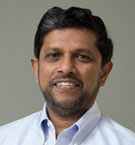 Ramnik J. Xavier, MD, PhD
Ramnik J. Xavier, MD, PhD
Kurt J. Isselbacher Professor of Medicine
Massachusetts General Hospital and Harvard Medical School
Core Faculty, Broad Institute of MIT and Harvard
Dr. Ramnik Xavier is the Kurt Isselbacher Professor of Medicine at Harvard Medical School, Director of the Center for Computational and Integrative Biology, and Member of the Department of Molecular Biology at Massachusetts General Hospital (MGH). He is a Core Institute Member of the Broad Institute of MIT and Harvard, where he is the Director of the Klarman Cell Observatory, Director of the Immunology Program, and co-director of the Infectious Disease and Microbiome Program. He is also co-director of the Center for Microbiome Informatics and Therapeutics at MIT and vice director of the Gene Lay Institute of Immunology and Inflammation.
3:30pm - "Deciphering the gut microbiome’s role in colorectal cancer"
 Emily P. Balskus, PhD
Emily P. Balskus, PhD
Thomas Dudley Professor of Chemistry and Chemical Biology
Harvard University / HHMI
Dr. Emily Balskus is the Thomas Dudley Cabot Professor of Chemistry at Harvard University and a Howard Hughes Medical Institute Investigator. She received her undergraduate degree in chemistry from Williams College, her PhD in organic chemistry from Harvard University, and postdoctoral training in biochemistry and microbiology at Harvard Medical School. Emily’s research seeks to understand microbial metabolism in complex ecosystems like the human microbiome. Using chemical knowledge and tools, Emily and her group discover new microbial enzymes and metabolites as well as elucidate their impacts on human biology, with a major achievement being the characterization of colibactin, a gut bacterial genotoxin linked to colorectal cancer. Her research program has been recognized with multiple awards, including the 2012 NIH Director’s New Innovator Award, the 2013 Packard Fellowship for Science and Engineering, the 2019 Blavatnik Award for Young Scientists in Chemistry, and the 2020 Alan T. Waterman Award from National Science Foundation.
4:00pm - Break
4:20pm - Keynote Speaker Introduction & Prize Presentation
 Daniel A. Haber, MD, PhD
Daniel A. Haber, MD, PhD
Director, Krantz Family Center for Cancer Research
Director Emeritus, Mass General Brigham Cancer Institute
4:30pm - Prize Recipient/Keynote Speaker
Keynote Address: "Targeting the microbiome to promote health and end cancer"
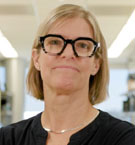 Jennifer A. Wargo, MD, MMSc
Jennifer A. Wargo, MD, MMSc
Professor, Department of Surgical Oncology, Division of Surgery
R. Lee Clark Endowed Professor
Professor, Department of Genomic Medicine, Division of Cancer Medicine
The University of Texas MD Anderson Cancer Center
Dr. Jennifer A. Wargo is the R. Lee Clark Professor of Surgical Oncology and Genomic Medicine at the University of Texas MD Anderson Cancer Center. Dr. Wargo also serves as Deputy Director of MD Anderson’s Cancer Center Support Grant and is the Founder and Leader for the Platform for Innovative Microbiome and Translational Research (PRIME-TR). Dr. Wargo began her career as a registered nurse, obtained her medical degree from Drexel University College of Medicine, and completed an internship and residency in general surgery at the Massachusetts General Hospital. She completed two fellowships in cancer immunotherapy (UCLA, NIH/NCI Surgery Branch) before beginning her career as a surgeon-scientist at Harvard / MGH. She joined MD Anderson Cancer Center in 2013 to help lead efforts in the Cancer Moonshot Program. Dr. Wargo is an elected member of the National Academy of Medicine and the American Society for Clinical Investigation and is the recipient of numerous awards, including the Sergio Lombroso Award in Cancer Research, the Dallas / Fort Worth Living Legend Achievement Award in Basic Research, and the Cancer Center 100 Award from MGH.
2025 Kraft Prize Recipient
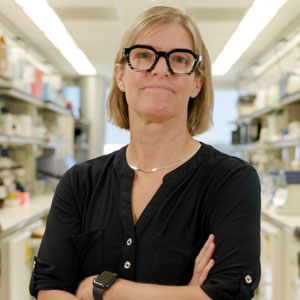 Jennifer A. Wargo, MD, MMSc
Jennifer A. Wargo, MD, MMSc
Professor, Department of Surgical Oncology, Division of Surgery
R. Lee Clark Endowed Professor
Professor, Department of Genomic Medicine, Division of Cancer Medicine
The University of Texas MD Anderson Cancer Center
Biography
Dr. Jennifer A. Wargo is the R. Lee Clark Professor of Surgical Oncology and Genomic Medicine at the University of Texas MD Anderson Cancer Center. Dr. Wargo also serves as Deputy Director of MD Anderson’s Cancer Center Support Grant and is the Founder and Leader for the Platform for Innovative Microbiome and Translational Research (PRIME-TR). Dr. Wargo began her career as a registered nurse, obtained her medical degree from Drexel University College of Medicine, and completed an internship and residency in general surgery at the Massachusetts General Hospital. She completed two fellowships in cancer immunotherapy (UCLA, NIH/NCI Surgery Branch) before beginning her career as a surgeon-scientist at Harvard / MGH. She joined MD Anderson Cancer Center in 2013 to help lead efforts in the Cancer Moonshot Program. Dr. Wargo is an elected member of the National Academy of Medicine and the American Society for Clinical Investigation and is the recipient of numerous awards, including the Sergio Lombroso Award in Cancer Research, the Dallas / Fort Worth Living Legend Achievement Award in Basic Research, and the Cancer Center 100 Award from MGH.
Research Summary

Dr. Wargo’s research focuses on how microbes within our body influence cancer development, progression, and response to cancer treatment – and how we can target these microbes to improve cancer therapy outcomes. Dr. Wargo began her work on the microbiome while she was on faculty at Harvard / MGH, and she discovered that microbes within tumors of patients with pancreatic cancer could break down chemotherapy into an inactive form (with Dr. Todd Golub and Dr. Ravid Straussman from Harvard / the Broad Institute / MIT). After joining the faculty at the University of Texas MD Anderson Cancer Center in 2013, Dr. Wargo began studies on the role of the gut microbiome in shaping response to treatment with immunotherapy for cancer. Dr. Wargo’s group was one of the first to demonstrate that the richness and composition of the gut microbiome can favorably impact immunotherapy response and gained mechanistic insights from pre-clinical models. Importantly, Wargo’s group also demonstrated that many of the response-associated microbes in the gut were proficient in fiber fermentation, and they showed that patients with cancer who reported sufficient dietary intake (of at least 20 grams of fiber per day) were much more likely to respond to treatment with immunotherapy. Furthermore, they showed that the use of commercially available probiotics was associated with impaired immunity and worse outcomes to treatment with immunotherapy in pre-clinical models. Dr. Wargo and her team are now working with others around the world to develop strategies to monitor and modulate gut and other microbes to improve outcomes of cancer treatment and to promote overall health (via MD Anderson’s Platform for Innovative Microbiome and Translational Research – PRIME-TR). This includes the use of engineered synthetic communities of microbes, which can be transplanted into the gut of patients, along with fecal microbiota transplant (FMT) and other strategies. Dr. Wargo’s group is also performing carefully controlled dietary intervention studies with high fiber and other approaches in patients with cancer being treated with immunotherapy and other forms of cancer treatment – with the hypothesis that this intervention will improve outcomes to therapy. They are also testing high-fiber dietary intervention in healthy individuals in the context of the annual flu vaccine to see if intake of high dietary fiber will also improve immunity from vaccines. Dr. Wargo and her team continue to work with others around the world to better understand how we can target the microbiome to promote health and end cancer.
Previous Award Recipients
Jonathan Kraft Prize for Excellence in Cancer Research
Presented by Mass General Brigham Cancer Institute
2024
Howard Y. Chang, MD, PhD
D.K. Ludwig Professor of Cancer Research
Director, RNA Medicine Program at Stanford University
Professor of Dermatology and of Genetics, Stanford University, School of Medicine
Investigator, Howard Hughes Medical Institute
2023
Michelle Monje, MD, PhD
Professor of Neurology and Neurological Sciences
Stanford University
Investigator, Howard Hughes Medical Institute
2021
Aviv Regev, PhD
Head, Genentech Research and Early Development
Core member (on leave), Broad Institute of MIT and Harvard
Professor of Biology (on leave), MIT
2019
Carl June, MD
Richard W. Vague Professor in Immunotherapy
Director, Center for Cellular Immunotherapies
Perelman School of Medicine, University of Pennsylvania
2018
Charles Swanton, MD, PhD
Royal Society Napier Chair in Oncology
The Francis Crick Institute
Chair, Personalized Cancer Medicine, UCL Hospitals
Cancer Research-UK Lung Cancer Centre of Excellence
2017
Kevan M. Shokat, PhD
Professor, Department of Cellular and Molecular Pharmacology
University of California San Francisco
2016
Joan A. Steitz, PhD
Sterling Professor of Molecular Biophysics and Biochemistry
Yale School of Medicine
2015
C. David Allis, MD, PhD
Joy and Jack Fishman Professor
Laboratory of Chromatin Biology and Epigenetics, Rockefeller University
The Annual MGH Award In Cancer Research
In memory of Nathan and Grace Shiff
2014
Hans Clevers, MD, PhD
President of the Royal Netherlands Academy of Arts and Sciences
Professor of Molecular Genetics, University Utrecht, Netherlands
2013
James Allison, PhD
Chair, Department of Immunology
MD Anderson Cancer Center, Houston, TX
2012
Craig Thompson, MD
President and Chief Executive Officer
Memorial Sloan-Kettering Cancer Center, New York
2011
Michael Stratton, MD, FRS
Director, Wellcome Trust Sanger Institute
2010
Charles Sawyers, MD
Chairman of the Human Oncology and Pathogenesis Program
Memorial Sloan-Kettering Cancer Center, New York
2009
Bert Vogelstein, MD
Director of the Ludwig Center for Cancer Genetics & Therapeutics
Sidney Kimmel Comprehensive Cancer Center
Johns Hopkins University, Maryland
2008
Titia de Lange, PhD
Associate Director of the Anderson Cancer Center
Rockefeller University, New York
2007
Joan Massague, PhD
Chairman of the Cancer Biology and Genetics Program
Memorial Sloan-Kettering Cancer Center, New York
2006
Anton Berns, PhD
Director of Research and Chairman of the Board of Directors,
Netherlands Cancer Institute and Antoni van Leeuwenhoek Hospital, The Netherlands
Past Events
View Past Events
2024 Jonathan Kraft Prize for Excellence in Cancer Research
May 2, 2024 | Download Event Flyer
The 2024 Kraft Award was presented to Howard Chang, MD, PhD of Stanford University for his groundbreaking work on mechanisms that coordinate the activities of global gene expression programs controlling cell fate.
2023 Jonathan Kraft Prize for Excellence in Cancer Research
May 2, 2023 | Download Event Flyer
The 2023 Kraft Award was presented to Michelle, Monje, MD, PhD of Stanford University for her groundbreaking work in Neuro-Oncology.
2021 Jonathan Kraft Prize for Excellence in Cancer Research
November 4, 2021 | Download Event Flyer
The 2021 Kraft Award was presented to Aviv Regev, PhD, Head of Genentech Research and Early Development, for her groundbreaking work in cancer heterogeneity and single cell genomics.
2019 Jonathan Kraft Prize for Excellence in Cancer Research
May 2, 2019 | Download Event Flyer
The 2019 Kraft Award was presented to Carl June, MD, of the University of Pennsylvania, for his outstanding work in CAR T cell therapy for cancer.
2018 Jonathan Kraft Prize for Excellence in Cancer Research
May 3, 2018 | Download Event Flyer
The 2018 Kraft Award was presented to Charles Swanton, MD, PhD, of the Frances Crick Institute and Cancer Research-UK, for his outstanding work that has led to insight into genomic diversity within cancers and molecular mechanisms driving cancer evolution.
2017 Jonathan Kraft Prize for Excellence in Cancer Research
May 3, 2017 | Download Event Flyer
The 2017 Kraft Award was presented to Dr. Kevan M. Shokat, of UCSF, for his outstanding work in pioneering a technique to identify the substrates of individual kinases, and for developing a method to precisely control a particular kinase’s activity using small-molecule inhibitors.
2016 Jonathan Kraft Prize for Excellence in Cancer Research
May 26, 2016 | Download Event Flyer
The 2016 Kraft Award was presented to Dr. Joan A. Steitz, of Yale University, for her outstanding contributions to the field of non-coding RNA-protein complexes and their emerging role in abnormal development and cancer.
Krantz Family Center for Cancer Research
The scientific engine for discovery for the Mass General Brigham Cancer Institute.
Kraft Prize Symposium
The 2025 Jonathan Kraft Prize for Excellence in Cancer Research will take place May 29, 2025.
